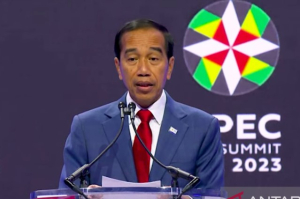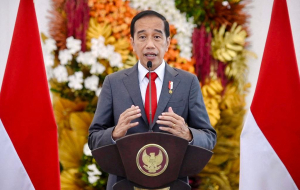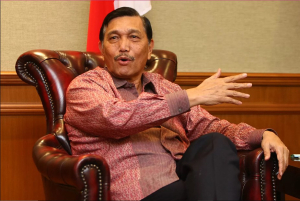Jokowi orders for acceleration of coconut waste processing into bioenergy
President Joko “Jokowi” Widodo has called for the swift advancement of processing industrial coconut waste into bioenergy and biofuels while observing vast opportunities ahead for Indonesia.
Indonesia, with 3.8 million hectares of coconut plantations producing 2.8 million tons annually, is the world's second-largest coconut producer, with North Sulawesi and Riau as the leading regions.
"The green economy presents a vast opportunity for our country," Jokowi said at the 51st International Coconut Conference in Surabaya on Monday, July 22, 2024.
He noted that Indonesia's coconut exports generate US$1.55 billion in revenue annually and stressed the need for research to develop high-yield coconut varieties, modern cultivation methods, and efficient harvesting techniques. The president the potential of using coconut waste for bioenergy and bioavtur production.
Previously, Jokowi approved a proposal to expand the role of the Oil Palm Plantation Fund Management Agency (BPDPKS) that will now manage funds not only from the palm oil industry but also from the cocoa and coconut industries.
The decision was made upon a limited Cabinet meeting chaired by the president at the Merdeka Palace in Jakarta on July 10, 2024.
Trade Minister Zulkifli Hasan said that President Jokowi has approved the addition of a new deputy position in BPDPKS to handle these additional duties.
"There is no need for a new agency; it will be merged into BPDPKS because oil palm, coconut, and cocoa are similar," Zulkifli said after the meeting.
Currently, BPDPKS funds are used for plantation rejuvenation, palm oil research and development, and food needs. The managed funds can also be used to promote the downstreaming of the palm oil industry and provide and utilize biodiesel as a blend for diesel fuel.
Tag
Already have an account? Sign In
-
Start reading
Freemium
-
Monthly Subscription
20% OFF$29.75
$37.19/MonthCancel anytime
This offer is open to all new subscribers!
Subscribe now -
Yearly Subscription
33% OFF$228.13
$340.5/YearCancel anytime
This offer is open to all new subscribers!
Subscribe now






